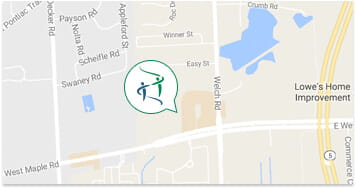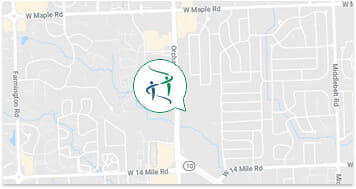
Eating Disorders
Eating disorders, such as anorexia, bulimia, and binge eating disorder include extreme emotions, attitudes, and behaviors surrounding weight and food issues.
Eating disorders are serious emotional and physical problems that can have life-threatening consequences for females and males. These disorders affect thirty million Americans and seventy million people worldwide. These diagnoses are treatable with the proper interventions. If you believe that you fit the criteria for one of these eating disorders, it may be time to seek out help. Below are the identified symptoms that characterize the different forms.

Anorexia Nervosa
Anorexia nervosa is a dangerous, life-threatening disorder in its severe form. This diagnosis is characterized by self-starvation and excessive weight loss. Symptoms include:
- Inadequate food intake leading to a weight that is clearly too low.
- Intense fear of weight gain, obsession with weight, and persistent behavior to prevent weight gain.
- Self-esteem is overly related to body image.
- Inability to appreciate the severity of the situation.
There are Two Types: Binge-Eating/Purging Type involves binge eating (overeating) and/or purging (behaviors to eliminate food intake from binging behaviors) during the last three months.
Restricting Type does not involve binge eating or purging. Includes excessively restricting daily food intake.

Bulimia
Bulimia nervosa is a serious, potentially life-threatening eating disorder characterized by a cycle of bingeing and compensatory behaviors such as self-induced vomiting designed to undo or compensate for the effects of binge eating. Symptoms include:
- Frequent episodes of consuming a very large amount of food followed by behaviors to prevent weight gain, such as self-induced vomiting.
- A feeling of being out of control during the binge-eating episodes.
- Self-esteem is overly related to body image.

Binge Eating Disorder
Binge eating disorder is a severe, life-threatening, and treatable eating disorder. Symptoms include:
- Eating, in a discrete period of time an amount that is definitely larger than what most would eat in a similar period of time under similar circumstances.
- A sense of lack of control over eating during the episode (e.g., a feeling that one cannot stop eating or control what or how much one is eating).
The binge-eating episodes are associated with three (or more) of the following:
- Eating much more rapidly than normal.
- Eating until feeling uncomfortably full.
- Eating large amounts of food when not feeling physically hungry.
- Eating alone because of feeling embarrassed by how much one is eating.
- Feeling disgusted with oneself, depressed, or very guilty afterward.
- Marked distress regarding binge eating is present.
Binge eating occurs, on average, at least once a week for 3 months.
Binge eating is not associated with the recurrent use of inappropriate compensatory behaviors (e.g., purging) as in bulimia nervosa and does not occur exclusively during the course of bulimia nervosa or anorexia nervosa.



